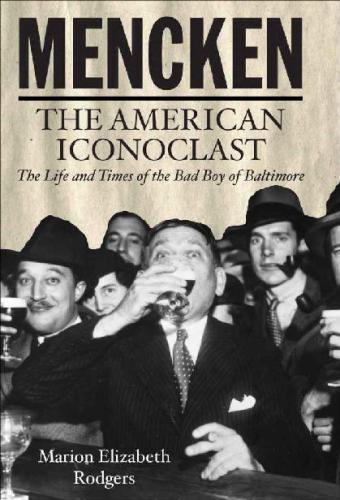

Most ebook files are in PDF format, so you can easily read them using various software such as Foxit Reader or directly on the Google Chrome browser.
Some ebook files are released by publishers in other formats such as .awz, .mobi, .epub, .fb2, etc. You may need to install specific software to read these formats on mobile/PC, such as Calibre.
Please read the tutorial at this link: https://ebookbell.com/faq
We offer FREE conversion to the popular formats you request; however, this may take some time. Therefore, right after payment, please email us, and we will try to provide the service as quickly as possible.
For some exceptional file formats or broken links (if any), please refrain from opening any disputes. Instead, email us first, and we will try to assist within a maximum of 6 hours.
EbookBell Team

0.0
0 reviewsHere is the definitive biography of Mencken, the most illuminating book ever published about this giant of American letters. We see the prominent role he played in the Scopes Monkey Trial, his long crusade against Prohibition, his fierce battles against press censorship, and his constant exposure of pious frauds and empty uplift. The champion of our tongue in The American Language, Mencken also played a pivotal role in defining the shape of American letters through The Smart Set and The American Mercury, magazines that introduced such writers as James Joyce, F. Scott Fitzgerald, and Langston Hughes.
**
From Publishers WeeklyStarred Review. For much of the early 20th century, H.L. Mencken (1880–1956), aka the Baron of Baltimore, was the country's most famous pundit, inspiring both love and fear and sometimes an equal measure of both. As novelist Richard Wright noted, "He was using words as a weapon." His targets were only the biggest issues of his day: Prohibition, puritanism and censorship. Even now, almost 50 years after his death, many of Mencken's political insights hold true, such as this gem: "Nations get on with one another, not by telling the truth, but by lying gracefully." Yet as Rodgers shows in this thorough work, Mencken was more than a newspaperman and prolific author; in 1924, he founded—and continued to edit—the highbrow (and popular) monthly magazine The American Mercury, which printed pieces by F. Scott Fitzgerald and Langston Hughes (at a time when most white editors would have nothing to do with black writers). But Rodgers, editor of Mencken and Sara: A Life in Letters and The Impossible H.L. Mencken, doesn't shy away from her subject's faults; she examines Mencken's anti-Semitism and his unsettling devotion to Germany (the land of his ancestors) even as the shadow of the Nazi Wehrmacht fell on Europe. Drawing on research in more than 60 archives (including previously unseen private collections in the U.S. and in Germany), exclusive interviews with Mencken's friends and his love letters, this is a meticulous portrait of one of the most original and complicated men in American letters. Photos. (Oct.)
Copyright © Reed Business Information, a division of Reed Elsevier Inc. All rights reserved.
Starred Review Just before graduating from Goucher College, Rodgers came upon a box of love letters between alumna Sara Haardt and author H. L. Mencken. The discovery opened doors into the fascinating life of an iconic American writer and social commentator. With obvious affection for her subject, access to untapped sources, and interviews with Mencken's friends and enemies, Rodgers offers an absorbing look at the "bad boy of Baltimore" who grew to international fame and influence. Mencken started his career at the Baltimore Herald but went on to write The American Language and to contribute to shaping the American literary scene. Along the way, he introduced such writers as James Joyce and F. Scott Fitzgerald. Rodgers details Mencken's sexual appeal and several long affairs before marrying Haardt, whose illness and death foreshortened their happy marriage. Mencken's wit and piercing insight, ardent defense of press freedom, and love of the common man and language were imprinted on his writing as he covered and commented on everything from the Depression to Prohibition, all the while railing against pieties that covered social injustice. Rodgers conveys the high spirits and complexity of an American iconoclast and the turbulent times in which he lived. Vanessa Bush
Copyright © American Library Association. All rights reserved